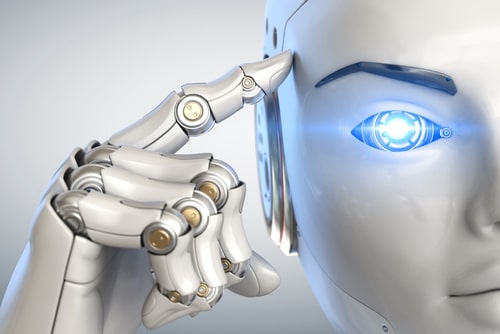
There is no doubt that AI – Artificial Intelligence has crept into our lives. Mobile applications such as Cortana to AI devices that monitor our homes such as Google Home and Amazon Echo. Businesses are beginning to integrate AI in the workplace and using AI to streamline working practices. More and more businesses are using AI to make better use of their resources, make data useful in ways and AI has streamlined the most complicated processes too.
While we are all using AI to make our lives easier and less complicated, we are also becoming more reliant on it. AI is expected to have a negative impact on human jobs.
The future of chatbots
Mark Zuckerberg, founder of Facebook created a lot of hype around chat bots. Facebook announced that Facebook messenger would be hosting a couple of chatbots in the future and that they could replace human jobs. While the aim remains to help businesses help build bots on their chat apps which can have automatic conversations with potential clients leading to more sales and brand awareness. There are a myriad of bots already being used in various aspects of businesses. Some popular ones are available on Wall Street Journal News, HP Printing and Spotify music.
The effect on business
Bots can be comparatively less expensive and faster than creating a mobile application, so it will not come as a surprise if bots start replacing apps in coming few years. Many of these bots are already carrying out tasks which were done by humans in the past.
Some of the jobs already replaced are:- Customer care agents
- Fast food servers
- Travel assistants
- Personal assistance
Jobs expected to be replaced by AI
Besides carrying many day to day jobs, research has clearly made evident that many more jobs have a threat of being replaced by AI. Many jobs like telemarketers, credit analysts, bookkeeping clerical jobs, cashiers and accountants have very high probability of being replaced and automated.
While AI has surely taken over many human jobs and will continue to do so, it is only obvious that it will also create many new job opportunities. Qualified computer scientists will be high in demand to create and run the AI. This will also include engineers, retail analysts and accountants. There will also be a requirement for people to create data to be processed by AI and trainers who will train people on using the new technology.
Which jobs are safe from AI
- Creative jobs like those of designers, writers, artists and hairdressers
- The jobs which require human skills like singers, sports and dancers.
- Jobs that require a display of human emotions like those of counsellors, therapists, dentists and police officers
- Jobs that require specific knowledge like florists or tour guides
- Jobs related to creating, fixing and maintaining AI technology
How to safeguard your job from automation?
1. Be aware of your risks
Research the risks of being replaced in the near future. Jobs that require interaction with people on a personal level or the ones that need ideas to create something are less likely to be replaced.
Understand the concept of partial automationIt is highly likely that just a part of a job might be replaced such as input of data. But this could be a positive change and help boost productivity. Employees can spend a large amount of time completing boring monotonous tasks, which if taken care by AI will only boost mental productivity by removing the churn.
2. Look for a career change
If you think your job has a high risk of being replaced, prepare yourself in advance. Consider training in a new skill with different soft skills which are less likely to be replaced.
The use of Artificial Intelligence is likely to grow in workplaces as well as homes. Whilst it will inevitably replace jobs, it will also keep opening new opportunities.
If you think you are likely to be made redundant due to AI implementation our no win no fee Employment Solicitors can assist with all types of claims . Naturally, we pride ourselves on providing the best possible service to the highest standards, we offer employment law advice on all problems. Call us on 020 3835 3940.

